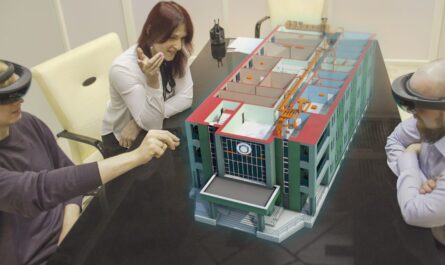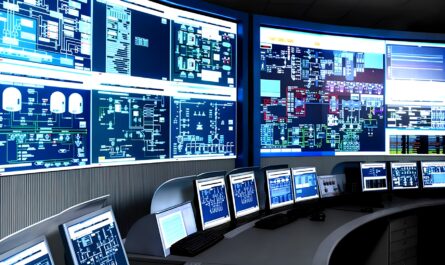Rising Demand for Experiential Events in the U.S. MICE Industry
The Meetings, Incentives, Conferences and Exhibitions (MICE) industry in the United States has seen tremendous growth over the past decade. As businesses and organizations look for new ways to engage attendees and boost participation, there has been a marked shift toward more experiential events that encourage interactions, learning and fun. This trend is likely to continue driving opportunities within the U.S. MICE industry for years to come.
The Focus on Experience
Gone are the days when static presentations and one-way information sharing sufficed for conferences and trade shows. Today’s attendees are seeking events that stimulate their senses and spark meaningful connections with others. According to research from the Events Industry Council, over 75% of attendees now cite “gaining new experiences” as an important factor in deciding whether to participate in a meeting or exhibition.
Meeting planners have responded by incorporating more hands-on activities, interactive elements and chances for networking into their programs. For example, conferences may include simulated workshops, experiential learning labs or guided discovery experiences. Expos are integrating attractions like immersive trade show floors, interactive exhibits or virtual/augmented reality components. Incentive trips are curating custom adventures, cultural immersions and teambuilding activities.
The interactive elements appeal to different learning styles and bring topics to life. They also create energy and buzz that extend attendee engagement before, during and after the event concludes. As people seek novel memories and experiences to share on social media, these types of one-of-a-kind activations have become table stakes for competitive events.
Consumerization of Business Events
Mirroring broader consumer market trends, business events are evolving to feel more like leisure experiences. Attendees now expect the same caliber of activities, amenities and service they receive when traveling for pleasure. Meeting spaces are taking on more resort-like qualities with upgraded food & beverage offerings, sophisticated technologies and inviting designs.
Luxury touches have become de rigueur at high-end corporate events, with catering from celebrity chefs, open bars and swag bags containing high-end products. Incentive programs resemble all-inclusive vacations with gourmet meals, spa services and recreational options. Trade shows even bring the carnival atmosphere of consumer shows to their exhibits and networking areas.
The consumerization is a deliberate strategy on the part of planners to recruit new attendees and keep loyal customers engaged over the long haul. People feel respected and valued when events mirror the premium experiences found in their personal lives. It cultivates brand loyalty and willingness to keep returning and recommending events to colleagues.
Expansive Venue Options
As events up the experiential ante, meeting facilities are evolving too with diverse, amenity-rich settings that enhance the overall experience. Beyond traditional convention centers, U.S. destinations now offer an eclectic assortment of venue options tailored for specific needs:
– Resorts & Hotels – Full-service properties with breakout spaces, F&B and on-site activities provide a one-stop shop. Many feature hybrid indoor/outdoor areas ideal for receptions.
– Historic Sites – Iconic landmarks like presidential libraries or performance halls infuse events with cultural flair.
– Urban Centers – Cities offer energizing backdrops and access to public attractions for evening entertainment. Pop-up event concepts have gained traction in street festivals, public parks and creative district warehouses.
– National Parks – Scenic natural settings heighten meetings with outdoor adventures, stargazing and ecological education programs.
– Cruise Ships – Floating palaces provide multifaceted meeting grounds alongside ports of call for cultural immersion.
The variety of experiential venues matches the dynamic needs of today’s tech-savvy attendees. Planners can now craft hip, memorable gatherings virtually anywhere. This diversity of options continues fueling regional tourism growth across the nation.
Opportunities for Local Economies
As meeting concepts grow richer with attractions, discovery itineraries and teambuilding elements, the economic impacts expand far beyond the core event industry as well. Planners looking to curate unique experiences for delegates regularly source suppliers from a much wider spectrum of regional attractions, activities and service providers.
This programming ripples benefits throughout local small businesses and nonprofit organizations. For example, conference agendas may incorporate lessons from REI outdoor guides, cooking demonstrations from celebrity chefs’ restaurants or volunteer days with habitat conservation groups.
Trade shows work with local artist collectives to design interactive exhibit areas or integrate live music/dance performances from in-market talent. Incentive packages incorporate recreational outings led by independent tour operators as well as cultural immersions run by local heritage organizations.
The synergies facilitate new partnerships while spreading event dollars beyond hotels and convention venues. They strengthen diverse business sectors that heighten the overall attendee experience and competitive value proposition for host destinations. As experiential programming grows in strategic importance, its economic multipliers will keep widening across communities for many years to come.
Outlook for Continued Growth
With meeting professionals and attendees alike demanding richer immersive experiences, and destinations cultivating exciting venue infrastructure, the U.S. MICE industry looks poised for continued evolution and expansion. As the emphasis on engagement intensifies, planners will keep testing new concepts that spark genuine connections for participants. Facilities and local providers will adapt inventive ways to bring visions to life through diverse cultural programs, interactive technologies and outdoors adventures.
The focus on experience will only grow in strategic importance for attracting and retaining event business. Destinations able to curate the highest quality offerings across attractions, venues and partner support networks will gain significant competitive advantages for corporate meetings, trade events and incentive travel. For organizers, the opportunities to deliver truly memorable occasions that change perspectives will continue driving new standards of excellence within this dynamic sector.
Note:
1. Source: Coherent Market Insights, Public sources, Desk research
2. We have leveraged AI tools to mine information and compile it




